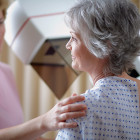I-Team I-Depth
Acute Drug Shortages Forcing Workarounds In Hospitals
|
In hospitals across Connecticut and nationwide, workarounds to compensate for medication shortages are daily routines for treating patients – and health experts say it’s not about to change any time soon. Some acute-care drugs in short supply nationally are antibiotics, antipsychotics, intravenous saline, and morphine, according to the most recent shortage list from the U.S. Food and Drug Administration. In Connecticut, hospital officials say they are turning to alternative drugs, rationing supplies, or seeking new suppliers to work around the shortages. At St. Francis Hospital and Medical Center in Hartford, Dr. C. Steven Wolf, chief of emergency medicine, said doctors most recently have been dealing with shortages of dextrose, used to treat dehydration and low blood sugar, as well as intravenous saline and other basic medications.

